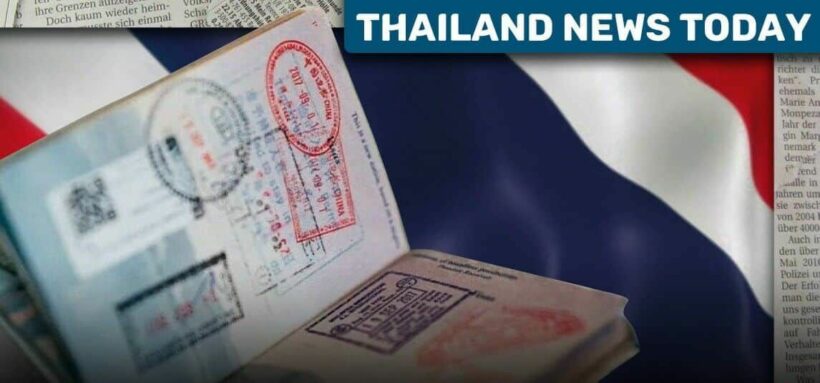10-year LTR visa to usher in golden age of prosperity for Thailand

The co-founder and CEO of an international real estate technology firm believes Thailand’s Long Term Resident (LTR) visa will provide the foundations for a golden age of prosperity, international travel, and residency.
The Kingdom of Thailand launched its latest 10-year LTR visa on September 1 hoping to attract foreign experts and wealthy expats in a bid to boost the nation’s flagging economy. The government believes the visa scheme will invite about 1 million wealthy foreigners and trigger over 1 trillion baht in revenue.
Kashif Ansari, co-founder and CEO of real estate technology firm Juwai IQI Group, reckons the LTR is “a big win for Thailand.”
“No one will apply for a residence visa anywhere in Asia without first looking at Thailand’s options. We have no doubt Thailand is right for enough applicants to achieve its investment and economic goals.”
The LTR program is part of the Better and Green Thailand 2030 foreign investment plan which allows four categories of applicants to apply for a 10-year renewable multiple entry visa that offers a 17 per cent personal tax rate for highly skilled professionals.
To qualify you need to have assets worth 36.5 million baht (US$1 million) in assets, an annual income of about 3 million baht (US$80,000) per year and an investment in Thailand worth 18.3 million baht (USS$500,000).
For pensioners to qualify they need to be aged at least 50 years old and have an annual income of about 1 million baht and an investment of about 9.1 million baht (US$250,000).
Remote workers should be employees of qualified overseas companies with an income of 3 million baht per year or a personal annual income of 1.5 million baht, have a master’s degree, hold intellectual property assets or receive Series A funding.
The same goes for highly skilled professionals. They must bring in a similar income or hold a master’s degree in science and technology.
The Thai government predicts 7.5 million international travellers will have come to the Land of Smiles by the end of the year, a 1,840% jump from the same time last year.
But Thailand won’t have it all its own way. It has competition to attract foreign experts and wealthy citizens from other countries. Singapore will launch a new five-year visa scheme in January to attract foreigners earning about US$21,000 a month that grants their spouses eligibility to work. And in September 2023, Singapore will offer a separate five-year pass for certain tech jobs.
Furthermore, Cambodia last month launched the attractive “Cambodia My Second Home” programme to tempt foreigners with only US$100,000 in investment capital while Malaysia offers a “My Second Home” scheme, along with a Premium Visa Programme.
Despite that Ansari believes Thailand’s LTR schemes are much more attractive and predicts a decade-long golden age for long-term international travel and residency.
“Bangkok estimates every digital nomad will spend about US$28,000 annually in the country. It only takes about 3,600 such visas to inject US$100 million directly into the Thai economy.”
But not everyone believes the scheme will be an instant success.
Bill Barnett, the founder of hospitality consultancy C9 Hotelworks, said the LTR programmes need more strategy.
“Case in point is the high net worth property ownership initiative, and how it works with the visa [immigration and land department]. These single-land approaches need to cover the entire pool of agencies.
“The ability to own a multimillion-dollar property comes hand in hand with wanting to attract millionaires.”
Nonarit Bisonyabut, at Thailand Development Research Institute Foundation, also has doubts.
“I think 60-80% of the first applicants would be those who already live and invest in Thailand. So, in terms of the money being injected into the economy, there might not be a clear increase because of this scheme.
“However, since countries like Singapore attract those at the top of the pyramid, Thailand might draw a wider pool of applicants because we offer services like healthcare at a more reasonable rate.”
Nonarit believes the Thai government needs to completely revamp its strategy for foreigners to own land to achieve its goal. He reckons allowing foreigners to own land would boost the sector.
The Thai government did put forward a plan in July to allow foreigners to own land if they invested 40 million baht in Thai property, securities or funds for at least three years. This would allow a foreigner to own about 1,600 square metres of land.
A research director at Colliers International, Phattarachai Taweewong, reckons a change to land rights for foreigners would make the LTR visa scheme more attractive to foreigners, especially those in Hong Kong, and Taiwan, caught up in the perpetual childish spat between the US and China and the latter’s zero-Covid policy.
SOURCE: South China Morning Post Spring News
Latest Thailand News
Follow The Thaiger on Google News:


























